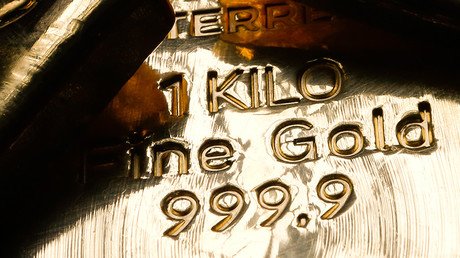Russia bans $500 million worth of imports from Ukraine in retaliatory sanctions
Russian Prime Minister Dmitry Medvedev has signed a ban on the import of more than 50 Ukrainian goods, worth $510 million. The move comes in response to recently prolonged Kiev’s embargo on Russian products.
The list, published by the Russian government on Saturday, includes mainly industrial goods, agricultural products, raw materials, and food. The products that fell under the ban are wheat, sunflower oil, sweets, chocolate, bread, bakery, vegetables, fruits, beer, caviar, fish and canned fish, Sanctions also target engines and power generators, tractors, turbines, and some other equipment and goods.
“Russia has introduced a ban on imports of a number of Ukrainian goods. This is a retaliatory measure against Ukrainian restrictions. I signed the corresponding decree,” Medvedev wrote on Twitter Saturday.
Россия вводит запрет на импорт ряда украинских товаров. Это – ответная мера на санкционные ограничения со стороны Украины. Подписал соответствующее постановление
— Дмитрий Медведев (@MedvedevRussia) December 29, 2018
Sanctioned Ukrainian goods amount to $510 million, according to preliminary evaluations of the Russian Ministry of Economic Development, cited by Interfax. It added that overall imports from Ukraine last year amounted to nearly $5 billion.
The restrictions can be lifted if Kiev gives up its own restrictions targeting specific Russian goods.
On December 18, the Ukrainian government extended its embargo on the import of Russian foods until the end of 2019. The restrictions targeted more than 30 products, some of them similar to the Russian list published on Saturday. The list includes bread, bakery, chocolate, sweets, meat, fish, coffee, black tea, infant food, some alcoholic beverages among other goods. Russian railway equipment also fell under Kiev's ban, including locomotives, railcars, trains and switch throwers.
Russia and Ukraine terminated their free trade deal in 2016, after the trade part of Kiev’s association agreement with the European Union came into force. Ukraine was automatically included in Russia’s sanctions against the EU imposed by Moscow back in 2014 as a response to European sanctions linked to the events in post-government coup Ukraine.
Despite the bilateral restrictions, trade turnover between Russia and Ukraine has increased in 2018, Russian President Vladimir Putin announced during his annual press conference earlier this month. Ukrainian statistics show that Russia remains its largest trade partner. In 2017, the turnover between the two nations increased by more than 28 percent and amounted to $9.3 billion.
For more stories on economy & finance visit RT's business section














